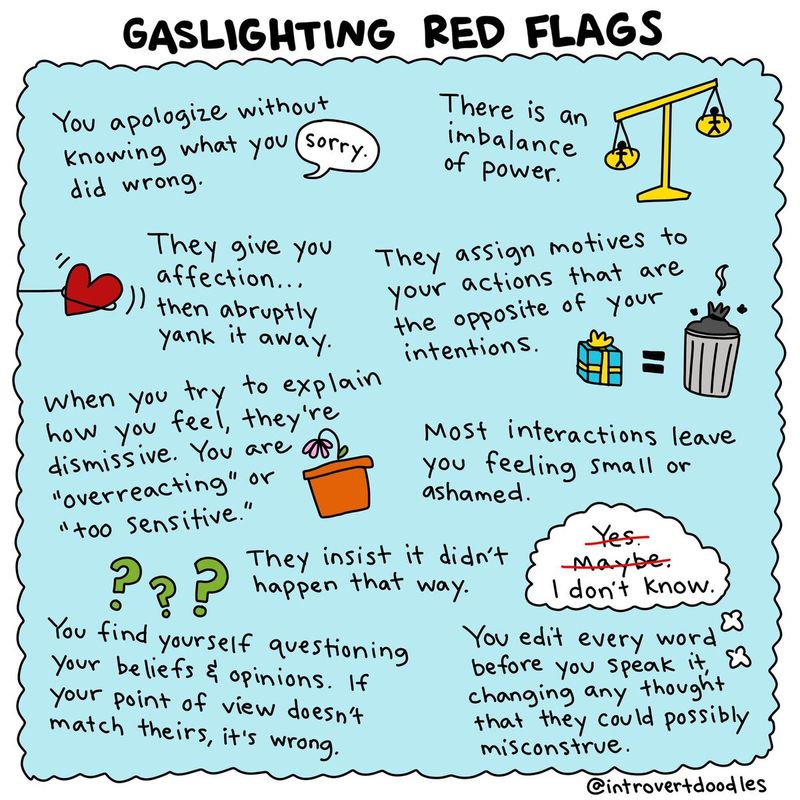In relationships, mutual respect is essential for fostering trust, communication, and emotional well-being. Certain behaviors can undermine this respect and harm the relationship. Here are 12 disrespectful relationship habits that should never be tolerated.
1. Constant Criticism

“Your flaws are glaring,” might not be said outright, but constant criticism can make it feel that way. Criticism should be constructive and build understanding, not undermine confidence. It’s like chipping away at a sculpture until nothing remains. Criticism when consistent, becomes corrosive. Imagine a partner always pointing out faults—like a teacher with a red pen—rather than celebrating achievements. It’s a cycle that breeds insecurity and resentment. Mutual respect is about highlighting the good while addressing areas for growth with kindness.
2. Lack of Communication

Silence isn’t golden in relationships; it’s often a sign of trouble. When communication is lacking, misunderstandings and feelings of neglect thrive. Picture this: one partner wants to talk about future plans, but the other shrugs it off. The silence grows louder than words. Honest dialogue is the glue that binds partners together. Without it, small issues can escalate, creating chasms where there once were bridges. Open, heartfelt conversations ensure both partners feel valued and heard.
3. Ignoring Boundaries

Boundaries—like invisible tapes—define personal space and emotional needs. Ignoring them is akin to trespassing. Imagine a partner using your phone without permission or interrupting personal time constantly. It sends a message of disregard. Respecting boundaries is crucial for building trust and safety. It’s not just about physical space; it’s about valuing each other’s individuality and autonomy. Healthy relationships flourish when both partners honor these invisible lines.
4. Gaslighting

Gaslighting is emotional manipulation, making someone doubt their reality. “You’re imagining things,” they might say, planting seeds of doubt. Imagine questioning your own memories because a partner insists you’re wrong. This tactic erodes self-confidence and sanity. It’s like walking through a hall of mirrors, unable to trust what you see. Emotional abuse in any form is destructive. Trust is shattered when reality itself is questioned.
5. Disrespecting Their Time

Time, the most precious gift, should not be wasted. Consistently being late or canceling plans last minute shows a lack of respect. Think of a partner waiting for hours, feeling undervalued. It’s like making someone a low priority on your list. When time is disregarded, it signals more than just poor time management; it hints at deeper disrespect. Punctuality shows commitment and appreciation for your partner’s time.
6. Playing Mind Games

Mind games are the chess of relationships, but with no winner. Tricks and manipulation breed confusion, not closeness. Think of a partner creating drama to control or acting aloof to test reactions. It’s like running a marathon where the finish line keeps moving. Instead of playing games, clear and honest intentions pave the way for a deeper connection. Relationships flourish when based on transparency, not deception.
7. Not Taking Responsibility for Mistakes

Owning up to mistakes is a sign of maturity. Shifting blame is like tossing a hot potato—no one wins. Imagine a partner who never apologizes, always deflects. It’s frustrating and breeds resentment. A sincere apology can mend the smallest cracks or the deepest chasms in relationships. Accountability fosters growth and trust. It shows willingness to learn and grow together. Relationships thrive on mutual respect and understanding.
8. Being Dismissive of Their Emotions

Emotions are the heartbeat of relationships. Dismissing them is akin to muting the music. Picture a partner brushing off feelings with a casual “It’s not a big deal.” It hurts, causing emotional withdrawal. Validation is key—acknowledging emotions nurtures connection. Empathy opens doors that silence closes. When feelings are valued, the relationship blooms. Listen and understand—let emotions be the bridge, not a barrier.
9. Lack of Support

In relationships, support is like the wind beneath wings—it lifts and propels. Without it, partners feel alone. Consider a partner facing challenges without encouragement. The absence of support is like sailing without wind. Showing up in tough times strengthens the bond. Emotional, mental, and physical support are pillars of a strong relationship. Being present and supportive makes love feel like a safe harbor.
10. Constant Comparisons

Comparisons are the thieves of joy in relationships. “Why can’t you be like them?” is a statement that stings. Imagine a partner always measuring you against others, creating insecurity. It’s like being in a race you didn’t sign up for. Relationships thrive on appreciation, not comparison. Celebrating each other’s uniqueness fosters a nurturing environment. Love is about embracing individuality, not blending in with the crowd.
11. Taking Them for Granted

Taking a partner for granted is like neglecting a garden—without care, it withers. “They’ll always be there,” might be the assumption, but it breeds neglect. Imagine never expressing gratitude, assuming love is enough. Appreciation is the sunlight relationships need. Regular expressions of gratitude maintain respect and admiration. When partners feel valued, the relationship blossoms. Show appreciation, and love will continue to grow.
12. Disrespecting Their Privacy

Privacy is sacred in relationships. Snooping is like reading someone’s diary without permission—it’s a breach of trust. Imagine a partner going through your belongings, driven by distrust. It’s invasive and destructive. Respecting privacy is essential for building a foundation of trust and respect. Healthy relationships are built on honesty, not surveillance. Trust is the backbone, and privacy is a vital part of that trust.

Well, hello there!
My name is Jennifer. Besides being an orthodontist, I am a mother to 3 playful boys. In this motherhood journey, I can say I will never know everything. That’s why I always strive to read a lot, and that’s why I started writing about all the smithereens I came across so that you can have everything in one place! Enjoy and stay positive; you’ve got this!

